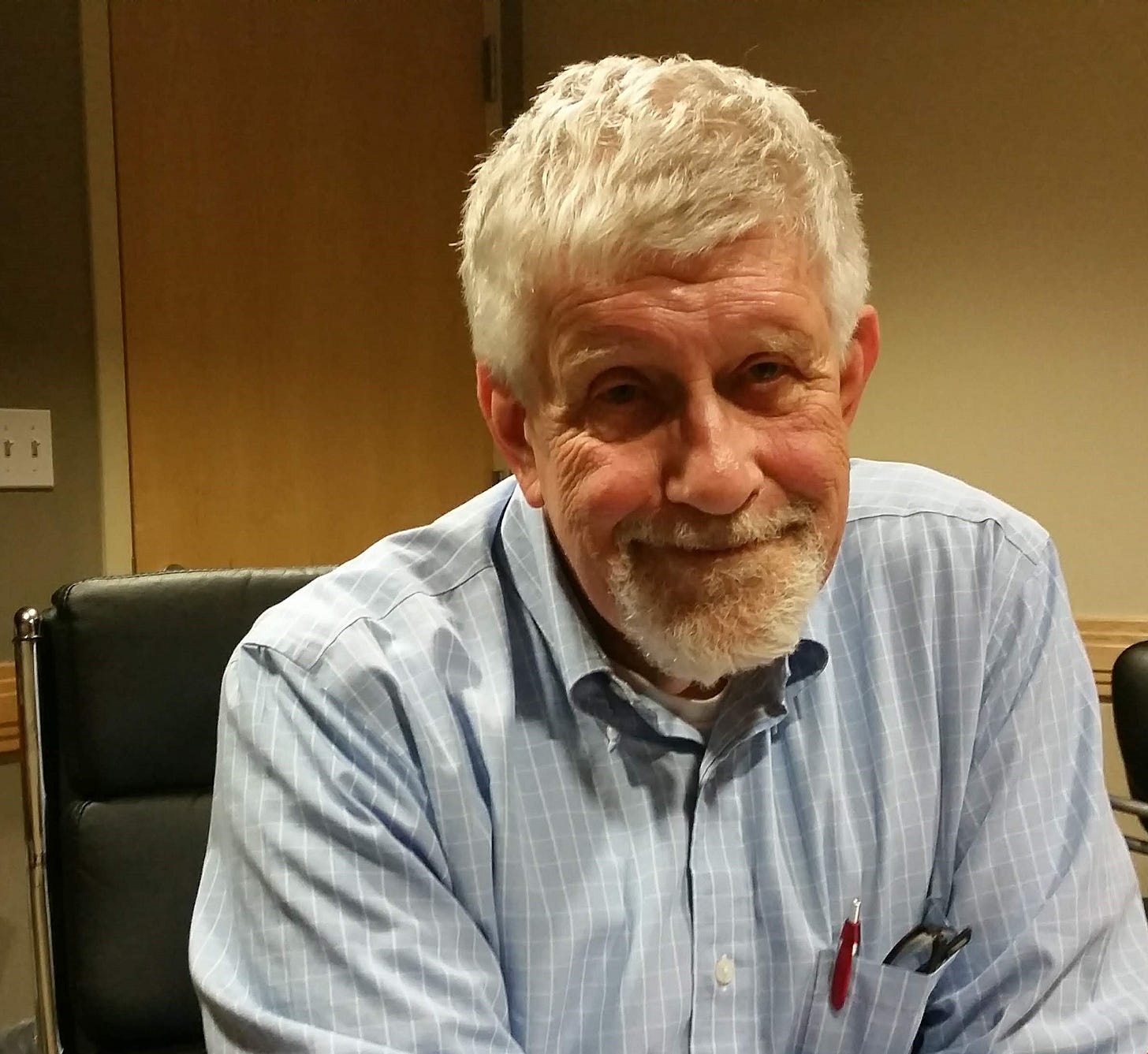vol. 1 issue 10
Dr. Allen Dyer, Professor of Psychiatry and Vice Chair for Education at the George Washington University School of Medicine and Health Sciences, and only living member of the original American Psychiatric Association’s ethics committee. Photo: Whitney Fishburn
Greetings,
Here’s a treat for you: a conversation with psychiatrist, Dr. Allen Dyer. He is the only living member of the American Psychiatric Association’s original ethics committee which in 1973 issued what is popularly called “the Goldwater Rule”.
I first met Dr. Dyer in 2017 while I was working on a story aimed at the diplomatic community, explaining what the Goldwater Rule is and why it was so controversial. In its most basic form, it is a principle that guards against psychiatrists diagnosing a person from afar, and then speaking publicly about that “diagnosis”.
This became an issue after Donald Trump was elected, since many in the pyschiatric community believed him to be a dangerous narcissist who would do irrevocable harm. During the APA’s annual meeting in 2017, members became very emotional and divided over whether or not to relax the “rule”.
The Goldwater principle is less of an open topic of discussion today, but Dr. Dyer says it is still a topic of much debate within the field. Its tenets also have been much discussed in the context of removing the president using the 25th Amendment vs. impeachment, or just waiting for the next election cycle.
I wanted to include Dr. Dyer in our Washington Remembers series because the presidential election cycle is upon us and questions about POTUS45’s mental health status are again percolating.
I also thought it important that we discuss the side of the debate which I believe got less popular coverage previously. Namely, I wanted to explore the side which had psychiatrists and others asking: What is the root cause of this kind of person being in power, and what does it say about who we are as a nation?
In our discussion, Dr. Dyer and I cover why and how the Goldwater principal came to be; whether psychiatrists actually are bound to adhere to it; what the definition of a narcisisst actually is; and most fascinating of all, the question of the actual problems we need to come together as a country and address from a mental health perspective and what we need to do to address them in a unified manner.
Do we have the tools we need to move forward in peace and security, regardless of what we individually think of the current president?
Listen and decide for yourself.













